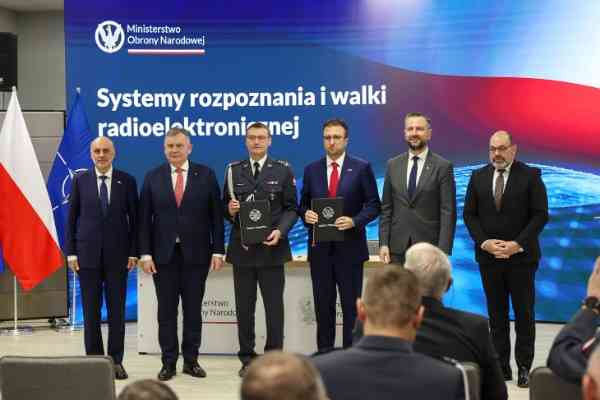Pakistan’s offshore exploration has long faced significant challenges, from technical difficulties to attracting the necessary investment. Yet, the recent launch of the Pakistan Basin Studies (PBS) 2024 initiative by industry leaders like OGDCL, PPL, MPCL, and GHPL offers a renewed sense of optimism for bringing reform to the energy sector of Pakistan. This initiative, overseen by the Directorate General of Petroleum Concessions (DGPC) under the Ministry of Petroleum Division, is a step in the right direction towards unlocking the untapped hydrocarbon potential lying beneath Pakistan’s offshore basins.
Despite this optimistic outlook, experts argue that a major flaw in Pakistan’s offshore exploration efforts has been the tendency to abandon projects after just a few attempts. This lack of persistence has left vast resources untapped beneath the seabed. Compounding the issue is the absence of a robust strategy to attract investors, which hampered the country’s ability to draw in the capital and expertise necessary for offshore exploration. The technical and infrastructural challenges are substantial, but they are not beyond overcoming. By failing to address these obstacles and make a strong investment case directly, Pakistan has inadvertently stalled progress on what could be a transformative resource for its energy future.
The PBS 2024 initiative will stand out because it represents a collective, industry-wide effort to confront these challenges head-on. Fully funded by Pakistan’s leading oil and gas companies, this initiative builds on the groundwork laid by the OGDCL Basin Studies in 2008 but with a more comprehensive and detailed approach. By incorporating advanced techniques like play-based exploration (PBE) and yet-to-find (YTF) strategies, the initiative aims to provide a clearer understanding of the country’s remaining oil and gas reserves.
Many countries around the world are leading in the exploration of offshore resources through the means of collaborative efforts by industry partners. Consider the example of Brazil. The country’s experience with offshore oil exploration, particularly in the pre-salt basins, offers valuable lessons. In the mid-2000s, Brazil discovered vast hydrocarbon reserves in deepwater areas, beneath a thick layer of salt under the seabed. Recognizing the immense potential of these reserves, the Brazilian government undertook significant energy reforms, opening the sector to foreign investment and forming strategic partnerships with international oil companies (IOCs). The introduction of Production Sharing Contracts (PSCs) allowed Petrobras to collaborate with global partners. Such collaborative efforts and strategic reforms unlocked Brazil’s offshore potential.
By integrating successful methodologies and experiences from other countries, Pakistan can unlock its offshore potential. For instance, Chinese Geological Surveys have proven highly effective in gathering crucial data for offshore exploration in Pakistan. These surveys have provided valuable insights into the complex geological formations of the Indus Basin, offering a better understanding of the subsurface structures. The success of these surveys highlights the importance of leveraging international expertise and advanced technology to enhance Pakistan’s exploration efforts. By building on the comprehensive data obtained by the Chinese, Pakistan can better target promising areas for future drilling, thereby reducing the risks associated with offshore exploration.
Pakistan Basin Studies 2024, in this regard, will turn out to be fruitful for Pakistan. The PBS 2024 project will be executed in phases, starting with a focus on the offshore Indus and Makran basin regions located off Pakistan’s southern coast that are believed to hold significant hydrocarbon reserves. These areas have remained largely untapped due to previous exploration challenges. By prioritizing these regions, the Pakistan Basin Studies 2024 initiative acknowledges both the potential rewards and the inherent difficulties. The involvement of D&M Consultants, a U.S.-based firm specializing in geological and geophysical analysis, adds further credibility to the project. With a team of international and local experts based in Islamabad, D&M will conduct an exhaustive review of all available geological and geophysical data, both onshore and offshore. This thorough analysis is expected to provide an updated and accurate forecast of Pakistan’s oil and gas resource potential, offering insights that could significantly impact the country’s energy strategy.
While the PBS 2024 initiative is a significant step forward, the challenges it faces are undeniable. Offshore exploration in Pakistan has been hampered by technical, financial, and logistical barriers. However, the collaborative effort by Pakistan’s leading oil and gas companies, under the guidance of DGPC, reflects a strong commitment to overcoming these obstacles. This initiative not only aims to refine our understanding of Pakistan’s energy potential but also to renew investor interest, potentially attracting increased foreign direct investment (FDI) into the sector.
Above all, the PBS 2024 initiative represents a critical opportunity for Pakistan to address its energy challenges. By focusing on collaboration, integrating successful international methodologies, and leveraging the expertise of global and local experts, this project could pave the way for a more secure and prosperous energy future. Despite the significant challenges, the potential benefits of this initiative make it a venture worth pursuing, with the promise of substantial returns for Pakistan’s economy and energy security.

Table of Contents
ToggleHamna Ghias Sheikh
Hamna Ghias Sheikh is a research associate at the Maritime Center of Excellence, Pakistan Navy War College She can be reached at hamna.sheikh009@gmail.com.
- Hamna Ghias Sheikh














One Response
Great